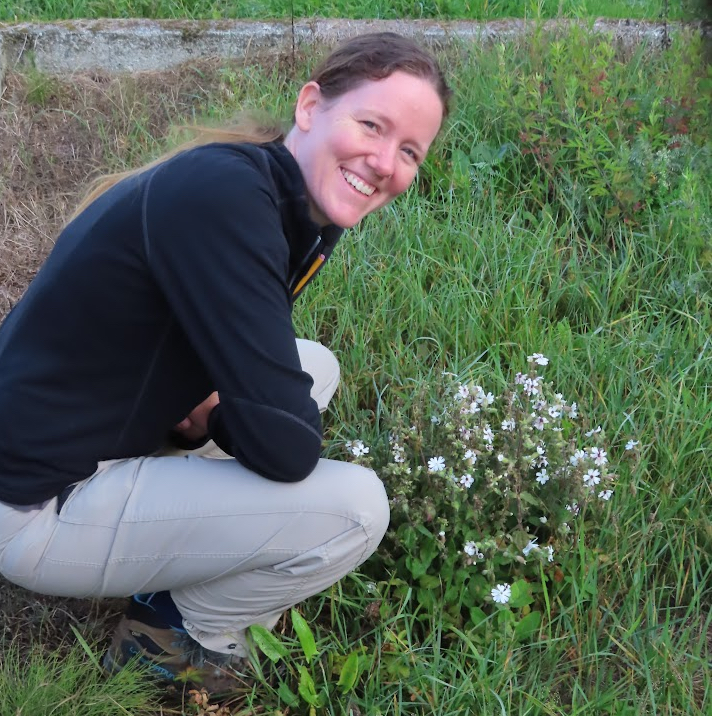Science on Tap
A monthly lecture series at UMD that explores the latest discoveries in science and technology in a relaxed atmosphere with food and drink
"Do Plants Get STDs? And Other Burning Questions About Infectious Disease in Nature"

Emme Bruns
Assistant Professor of Biology
University of Maryland
Monday, February 5, 2024
Doors open at 6 p.m.
Lecture begins at 6:30 p.m.
Ledo Pizza
4509 Knox Rd.
College Park, MD 20740
Paid parking is available in the attached city garage, which guests can enter on Yale Avenue. Guests may enter the event venue via the Ledo entrance on the corner of Knox Road and Yale Avenue.
Food and beverages will be available for purchase at the event.
If you have any questions about attending this event, including disability accommodations, please contact Rena Surana-Nirula at rena@umd.edu or 301-405-6563.
Subscribe to Receive Science on Tap Emails
About the Talk
Infectious disease is not just a human problem: Disease-causing microbes are ubiquitous in nature where they can play important ecological roles. Understanding the natural ecology of disease is essential for predicting larger outbreaks and developing control strategies. This talk will introduce the audience to the exciting and sordid world of plant disease and explain why plants are an ideal system for understanding the basic principles governing host and pathogen interactions in nature. It will then focus on a fungal pathogen of wild carnations that causes a sterilizing ‘anther-smut’ disease that is transmitted by pollinators (a form of sexual transmission in plants!). Emme will discuss how her lab has been using this naturally occurring plant-fungal interaction to understand the interactions between disease transmission, host age and the evolution of resistance. The lab is particularly interested in why hosts have evolved to be more susceptible to infection as juveniles, a pattern that is broadly shared across both plants and animals. Attendees will also gain new insights into how a warming climate can change disease interactions in natural plant populations.
About the Speaker
Emme Bruns is an assistant professor in the Department of Biology at the University of Maryland. Her lab group studies the ecological and evolutionary dynamics of infectious disease in natural populations, using plants and their fungal pathogens as a model system. Her work takes her and her students out to the Italian Alps every summer to study populations of endemic carnations that are heavily infected with anther-smut disease across and elevational gradient. She earned her B.S. in ecology and evolution from UC Santa Cruz and her Ph.D. from the University of Minnesota. She then moved to the University of Virginia as a postdoc where she first discovered the wonders of anther-smut disease. |






